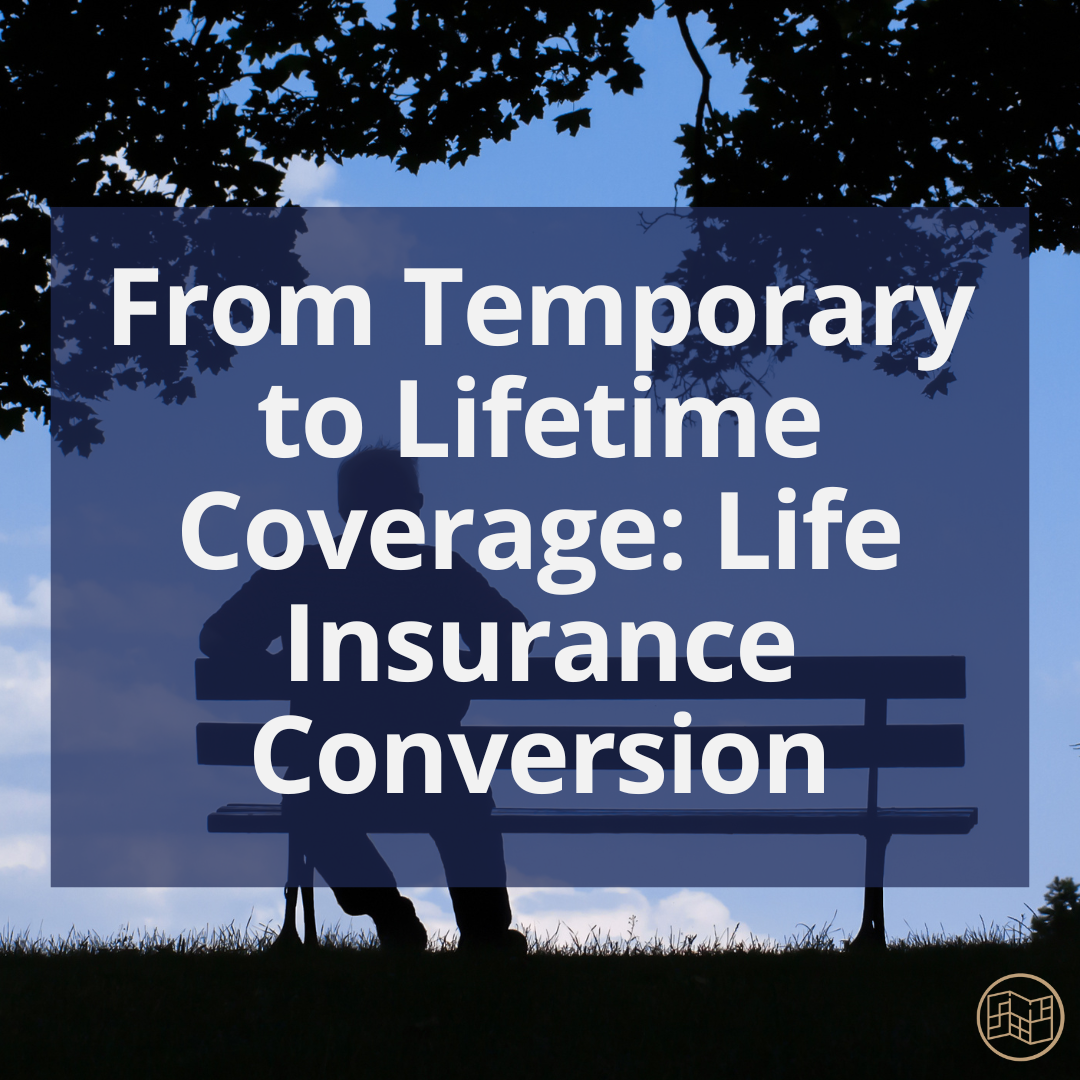Is My Work Insurance Enough?
(Seven-minute read time)
Are you in the process of reviewing your life insurance plan provided by your work and feeling unsatisfied with the limited coverage it provides? Do you wonder why paying for private coverage makes sense when you have group coverage through work? Let’s evaluate the pros and cons of private and group life insurance (through your employer) and when you should and shouldn’t get private life insurance. Be sure to also check out our free cheat sheet and common Q&A’s about life insurance at the end of this article to ensure you are on the right track for your next steps in securing a stable future for yourself and your loved ones.
What Is The Difference Between Private and Group Life Insurance?
Private life insurance is a customizable plan that has one policyholder who is responsible for the cost of the life insurance plan. Meanwhile, group life insurance (through your employer) is a more general plan that has members share the risks and costs.
Since private life insurance is customizable, there are various types of insurance plans you can evaluate that will suit your situation: term life insurance, whole life insurance, or universal life insurance. Meanwhile, group life insurance through your employer only provides term life insurance.
Learn More About the Types of Life Insurance
Check out our article: What Type of Life Insurance is Best?
Evaluating Life Insurance: Consider These Scenarios
Everyone’s circumstances are different, therefore evaluating life insurance for yourself will be different compared to your work colleagues. Consider these two colleagues, Emma and Mike, who work for a mid-sized tech company that provides group life insurance.
Emma is 33 years old, single, career-focused, and currently working in the marketing department for the tech company. She is saving up to own a home and has no children at the moment but is considering the possibility of starting a family in the future. Emma is in excellent health, exercises regularly, and has no known health issues. She is contemplating a job change to pursue a new opportunity that aligns better with her long-term career goals.
Given Emma's current situation, she may consider the following life insurance considerations:
Coverage Type: Since Emma is contemplating a job change and considering starting a family, a term life insurance policy can provide coverage during these crucial periods without a long-term commitment.
Coverage Amount: Emma can calculate her coverage needs based on her current financial obligations and potential future responsibilities, such as a mortgage or supporting children.
Portability: Given the possibility of changing jobs, Emma should consider private life insurance that is portable, allowing her to maintain coverage regardless of employment changes.
Emma decides to purchase a $500,000 20-year term policy for $22.77 a month to go along with her basic work insurance.
Mike is also 33 years old, happily married, and is actively planning to start a family in the next couple of years. He works in the IT department of the tech company and is not planning to change jobs in the near future. Both Mike and his spouse are in good health with no significant health issues. They have recently purchased a home and are considering life insurance to protect their growing financial responsibilities.
Mike may consider the following life insurance considerations:
Coverage Type: Mike may consider a combination of term and whole life insurance. A term policy can provide coverage during the crucial family-building years, while a permanent policy can offer long-term protection and potential cash value accumulation.
Coverage Amount: Mike should assess his current and anticipated future financial obligations, including the mortgage, potential children's education, and ongoing living expenses.
Spousal Coverage: If both Mike and his spouse are working and contributing to the family's financial well-being, they might consider life insurance for both individuals to ensure financial stability in the event of the unexpected.
Mike decides to purchase a $50,000 whole life insurance policy for about $38.57 a month. He also plans to fast-track his mortgage payment, so he chooses a shorter-term policy, a $750,000 10-year term policy for $32.18 a month. His private insurance also goes along with his basic work insurance.
Although both Emma and Mike have the same group life insurance provided by work, they have different life insurance considerations. Since life insurance considerations can vary based on individual circumstances, career plans, and family goals, individuals need to evaluate their unique situations and work with a financial advisor to determine the most suitable life insurance strategy.
Pros & Cons of Private Life Insurance
Pros:
Personalized to the individual who is covered
More control over the underwriting process, potentially securing better rates if you're in good health
More options for coverage
Option to choose insurance type: term, whole life, or both
Can extend coverage beyond your employment years
Is an asset that grows in value (whole life insurance)
Peace of mind
Cons:
Requires time to evaluate types of plans
Can be the more expensive option, especially if you are high risk, such as bad health
May require extra steps to set up, for instance, medical exams
Pros & Cons of Group Life Insurance
Pros:
Most convenient
More affordable (members share the cost)
Does not require a medical exam
Cons:
Your employer chooses the coverage
Your employer could change their provider or terminate the life insurance at anytime
Limited coverage
Does not provide options in type of insurance; acts only as a term life insurance
No underwriting or limited underwriting control
Limited number and type of beneficiaries you can designate
Ends when you quit/retire
No cash value over time
Why You Shouldn't Get Private Life Insurance
If you believe your work life insurance covers all the essentials you need and you plan to stay at your current job for a long period of time
You have extreme budget constraints
You don’t have any dependents and you don’t have ongoing obligations you need to cover (no liabilities if you pass away)
High-risk health conditions that would cause you to be declined
If short-term financial goals are your higher priority
If you already have more than enough accessible savings and investments that can provide financial support for your loved ones
Why You Should Get Private Life Insurance
You have long-term objectives, such as Family & Legacy Planning
If your work life insurance does not cover all your needs, you can get private life insurance to fill in the gaps
If you change jobs frequently and/or seeking to find a new job in the near future
The longer you wait, the more expensive it’ll become: the older you are, the more risk. Higher premiums
If you are on a budget, consider term life insurance; it is more affordable in the beginning. However, whole life insurance has the potential for more savings in the long run
If you decide to get whole life insurance, you are investing in an asset that grows in value. You can use whole life insurance to cover unexpected expenses or even supplement your retirement income
Conclusion
Your life insurance assessment will be different from your colleagues, so why settle for the same life insurance plan? For most people, adding at least a term policy on top of your work insurance is the best choice. When managing risk, this option has the most control and guarantees you remain insurable even if you leave your company or if your company changes providers.
For a quick summary of the pros and cons when considering adding private life insurance to your existing work insurance, complete the form below to receive a free downloadable one-page guide.
Life Insurance FAQ
-
Employer-provided life insurance may leave gaps in coverage, adding private life insurance can provide more comprehensive protection.
-
There is no one-size-fits-all approach for coverage amounts. The amount of coverage you need depends on various factors, including your financial obligations, dependents, and long-term goals. It's recommended to assess your specific needs and consult with a financial advisor to determine an appropriate coverage amount.
-
While the primary purpose is to provide a death benefit, certain life insurance policies, like cash-value policies, offer living benefits.
-
In Canada, the death benefit received from employer-sponsored life insurance is generally tax-free. However, any interest earned on the death benefit may be subject to taxation.
-
In many cases, employees have the option to opt out of group life insurance provided by the employer. However, it's essential to understand the implications and consider obtaining private coverage before opting out.
-
Employers have the discretion to modify or terminate employee benefits, including life insurance. It's crucial to review employment contracts, benefit documents, and communicate with your employer to understand the terms.
-
Term life insurance generally does not have a cash value, but certain permanent life insurance policies, like whole life or universal life, may have a cash value component that can be accessed through withdrawals or policy loans.
-
Life insurance can provide valuable financial protection for your loved ones. Whether it's a "waste of money" depends on your individual circumstances and financial goals. Consulting with a financial advisor can help you determine the appropriateness of life insurance for your situation.
-
In Canada, life insurance death benefits are typically not taxable. However, there may be exceptions, such as if the policy was assigned for value or if the insured was involved in criminal activity.
-
Life insurance provides broader coverage than mortgage insurance, which only covers the mortgage balance. Private life insurance is often recommended for more comprehensive financial protection.
To learn more about mortgage life insurance, check out our article: Should You Get Mortgage Life Insurance?
-
Underwriting in life insurance is the process of assessing an applicant's risk factors to determine the premium rate and coverage eligibility. It involves evaluating factors such as health, lifestyle, and medical history.
To learn more about underwriting, check out our article: What Is Underwriting in Life Insurance?
Recognized By
Interested in Learning More About Life Insurance?
Check out our additional resources:










